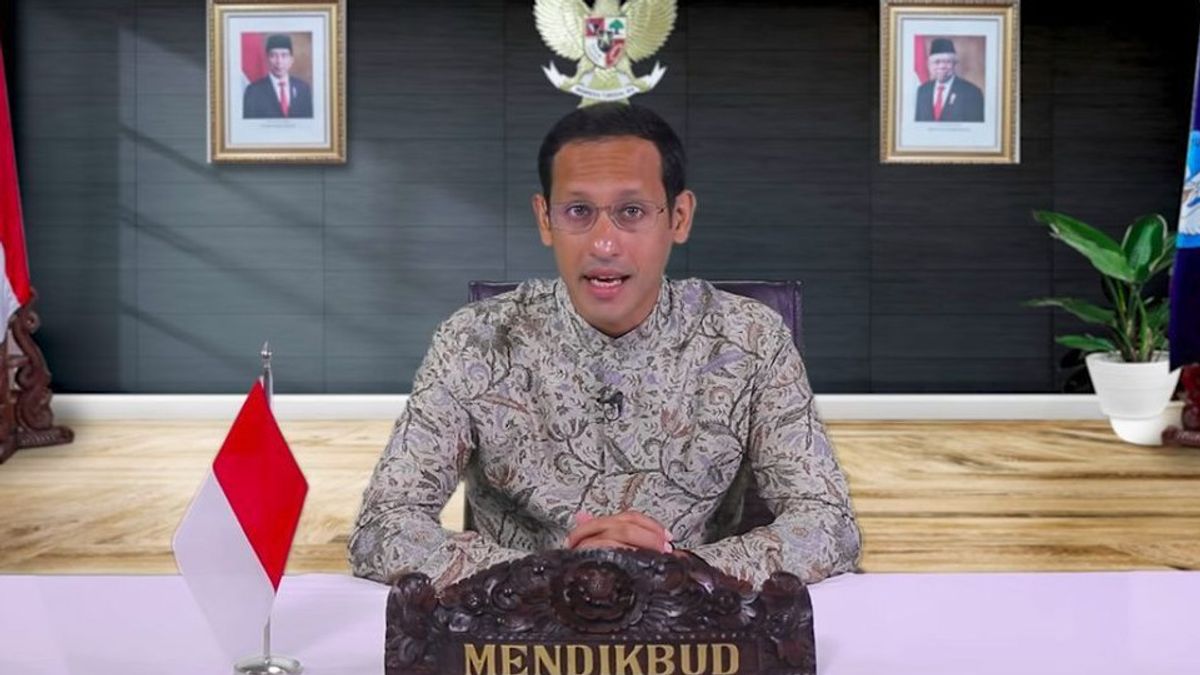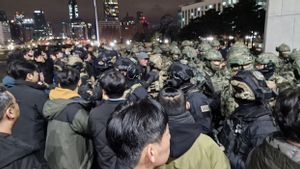JAKARTA - The Indonesian House of Representatives Commission X plans to schedule a Working Meeting with the Minister of Education and Culture, Research and Technology Nadiem Makarim, to discuss the polemic of Permendikbud Number 30 of 2021 concerning the Prevention and Handling of Sexual Violence in universities. the. According to him, the polemic arose because of differences in perceptions of the candy.
“In fact, we are working to make the campus a safe and conducive place. Don't let this chaos cause this effort to regress and even be hampered," Hetifah said in a statement, Friday, November 12.
Hetifah reminded the importance of the support of all parties to focus on eradicating acts of sexual violence in educational institutions. This is because sexual violence in educational institutions is still rampant. "This happens because the perpetrators take advantage of the existing power imbalance, for example by lecturers against students," he said.
According to Hetifah, the hierarchical inequality that exists in educational institutions is often misused by those who have the power to commit acts of sexual violence. Therefore, Hetifah reminded, the different interpretations of the regulation must be straightened out.
Golkar itself, continued Hetifah, appreciated the efforts of the Ministry of Education and Culture in preventing sexual violence through Permendikbud Number 30/2021. However, Hetifah suggested that the regulation in the Permendikbud be revised and better socialized to prevent multiple interpretations.
"The Golkar faction asserts that it is impossible for Golkar to accept regulations aimed at legalizing free sex in educational institutions. Moreover, the Golkar Party always upholds the values of Pancasila and the 1945 Constitution," added Hetifah. . Meanwhile, the PKS faction was the strongest in criticizing the Permendikbud, Research and Technology because it was considered to be the same as legalizing adultery. The points that are highlighted in Permendikbud, Research and Technology Number 30 of 2021 include: 1. Obligations to form a Task Force
One of the highlights of this Permendikbud came from a member of Commission X DPR RI from the PKS faction Sakinah Aljufri. He questioned the need for the campus to create a Task Force for the Prevention and Handling of Sexual Violence. According to him, this actually adds a new burden to the campus and the higher education community.
Article 1 The Task Force for the Prevention and Handling of Sexual Violence, hereinafter referred to as the Task Force, is part of the Higher Education which functions as the center for the Prevention and Handling of Sexual Violence in Higher Education.
2. Victim's Interest
Furthermore, this Permendikbud was criticized by a member of the DPR from the PKS faction, Ledia Hanifa Amaliah. One of them is because there is no religious norm in Article 3 which explains the prevention of sexual violence. Moreover, this article is considered to be guided by the concept of 'consent' or the consent of the victim. This 'consent' section is considered to legalize adultery. This is what the article says.
Article 3 Prevention and Handling of Sexual Violence is carried out with the following principles: a. the best interests of the Victim; b. justice and gender equality; c. equality of rights and accessibility for persons with disabilities; d. accountability; e. independent; f. prudence; g. consistent; danh. non-repetition guarantee.
3. Verbal Sexual Violence
In addition, Article 5 which contains the question of forms of sexual violence is also highlighted. PKS highlights the section on 'submission of speech that discriminates against gender identity' in paragraph 2 point a. Ledia judged this phrase to be biased. Here is what the article says:
Article 5(1) Sexual Violence includes actions carried out verbally, non-physically, physically, and/or through information and communication technology. (2) Sexual Violence as referred to in paragraph (1) includes: a. convey utterances that discriminate or harass the physical appearance, body condition, and/or gender identity of the Victim; b. showing their genitals intentionally without the victim's consent; c. convey remarks that contain seductions, jokes, and/or whistles that have sexual nuances to the Victim; d. stare at the Victim with sexual nuances and/or discomfort; e. send messages, jokes, pictures, photos, audio, and/or videos with sexual nuances to the Victim even though it has been prohibited by the Victim; f. take, record, and/or distribute photos and/or audio and/or visual recordings of the Victim with sexual nuances without the victim's consent; g. upload a photo of the victim's body and/or personal information that is sexually nuanced without the victim's consent; h. disseminating information related to the victim's body and/or personal sexual nature without the victim's consent; i. peeking or intentionally seeing the Victim who is carrying out activities personally and/or in a private room; j. persuade, promise, offer something, or threaten the Victim to carry out transactions or sexual activities that are not approved by the Victim; k. give punishments or sanctions of a sexual nature; l. touching, rubbing, touching, holding, hugging, kissing and/or rubbing body parts on the victim's body without the victim's consent; m. undress the victim without the consent of the victim; n. forcing the Victim to carry out a transaction or sexual activity; o. practicing the culture of the Student, Educator, and Educational Staff community with the nuances of Sexual Violence; p. attempted rape, but penetration did not occur; q. commits rape, including penetration with objects or body parts other than the genitals; r. force or deceive the Victim to have an abortion; s. force or deceive the Victim to become pregnant; t. allow the occurrence of Sexual Violence intentionally; and/oru. commit other acts of Sexual Violence. (3) The victim's consent as referred to in paragraph (2) letter b, letter f, letter g, letter h, letter l, and letter m, is considered invalid if the Victim: a. have a minor age in accordance with the provisions of the legislation; b. experiencing a situation where the perpetrator threatens, coerces, and/or abuses his position; c. experiencing conditions under the influence of drugs, alcohol, and/or drugs; d. experiencing pain, unconsciousness, or falling asleep; e. have a vulnerable physical and/or psychological condition; f. experiencing temporary paralysis (tonic immobility); and/org. experiencing a state of shock
The English, Chinese, Japanese, Arabic, and French versions are automatically generated by the AI. So there may still be inaccuracies in translating, please always see Indonesian as our main language. (system supported by DigitalSiber.id)










